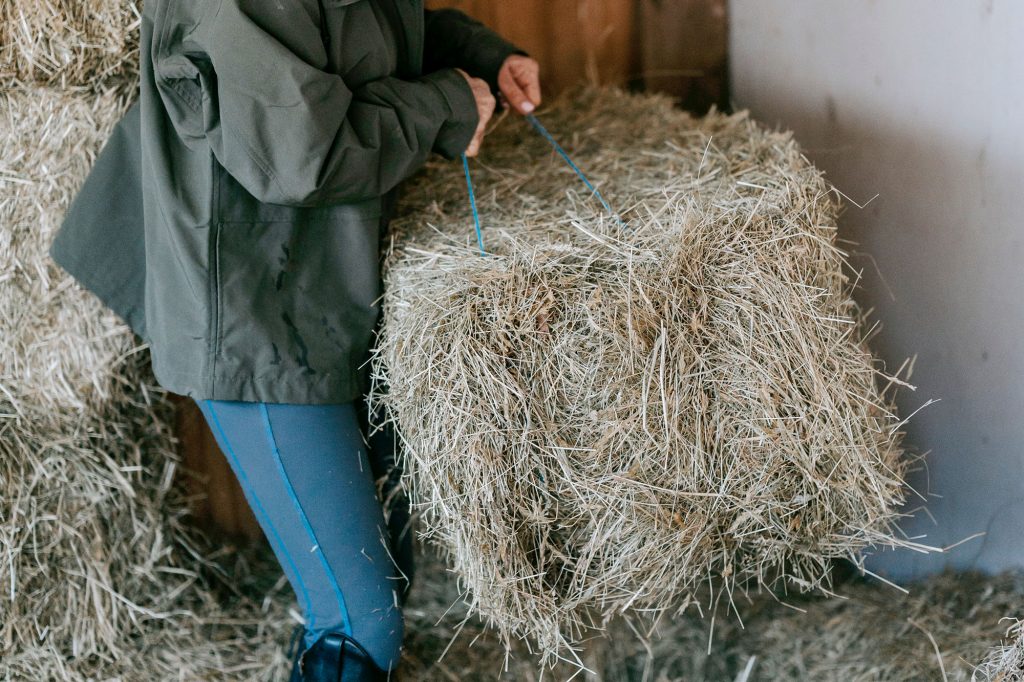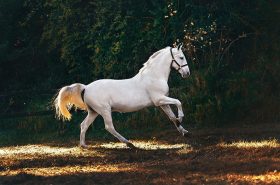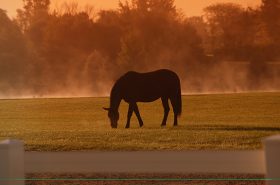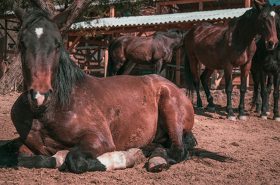Nine times out of ten, winter colic is due to impactions in the gut, most often in the large intestine, near or at the pelvic flexure. Summer colic, on the other hand, is often related to gas brought on by sudden changes in concentrates or sugars in turnout pastures.
Impaction colic is a condition, not a disease; it’s caused by a blockage of ingested feed that can’t quite make it all the way through your horse’s gut. Feed and gas then get trapped-and that-causes your poor horse a great deal of pain. Call your veterinarian at the first signs of a colic. She’ll likely prescribe hydrating fluids, laxatives, and a mild pain medication to help your horse’s gut relax enough to regain mobility.
Preventing winter colic is key and is fairly easy. Here are four tips to protecting your horse from a winter colic.
Keep your horse well-hydrated.
Hands down, the most important prevention is to give your horse access to temperate water. Studies show that horses prefer water that measures between 45-65˚ Fahrenheit. Consider heated buckets for your barn and a Post Hole Waterer for paddocks or fields. RAMM’s Ultimate Post Hole Waterer acts just like a frost-free hydrant that horses operate themselves. It’s a relatively small investment that pays for itself over and over again in the long run.

Feed plenty of high quality hay.
Alfalfa and grass hays past their bloom are tough on the equine gut. Even low-maintenance Thelwell types need high quality forage for good digestion and nutrition. If you notice your horse tends to lose weight in winter, be sure your hay is up to par before adding or increasing concentrates. While there are some obvious signs, the only way to assess nutrition content is to have your local ag extension do a hay analysis.
Keep your horse moving.
Your horse’s gut requires mobility to keep its motility. One recent study showed that colic episodes during winter storms might be linked to horses that are normally turned out, but suddenly stalled. If you choose to stall your horse due to an impending storm, be sure to keep an eye on his water consumption. Keep his gut moving by taking him for a hand-walk, an indoor ride, or maybe give ski-joring a whirl!
If your horse is a lazier type, what we call a paddock potato, encourage him to move in the winter by providing him with a spunkier companion. Put smaller hay drops in several areas so that he has to walk around a bit.
Schedule a dental exam.
Digestion begins in the mouth with mastication. If your horse has trouble chewing his hay or grain, he may be at risk for colic. Senior horses over the age of twenty, don’t need much more than a minor float and an exam to rule out gum disease, abnormally long teeth, or teeth that are overly worn, but younger horses may need to have teeth removed.
Be on the alert for winter colic symptoms. Your horse might go off his feed, look uncomfortable, stop passing manure, or bite at his flank. Always call your veterinarian as soon as you notice symptoms. Colic is always an equine emergency, but if treated promptly, over 80 percent of colic episodes have a good outcome.



